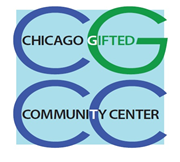From the Adler Planetarium E-News:
Join Adler astronomers and volunteers at Chicago's parks and schools this summer for free telescope observing.
Daytime observers can view the Sun safely through special filters to see its sunspots and prominences, while night time observers can potentially get a glimpse of the rings of Saturn and its largest moon, Titan, as well as the red planet, Mars.
Upcoming Events:
Saturday, June 21
10 a.m. to 12 p.m.
Buckingham Fountain at Grant Park (301 S. Columbus Dr.)
Thursday, July 10
1 to 3 p.m.
Union Park (1501 W. Randolph St.)
Thursday, July 17
8:30 to 10 p.m.
Ronan Park (2904 W. Lawrence Ave.)
Monday, July 21
10 a.m. to 12 p.m.
Buckingham Fountain at Grant Park (301 S. Columbus Dr.)
Tuesday, August 26
7:30 to 9 p.m.
Senn High School (5900 N. Glenwood Ave.)
Please note: All dates are weather-permitting. Follow @adlerskywatch on Twitter for day-of updates.
